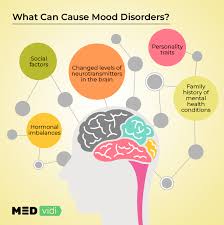Effective Ways to Manage Stress
Stress is a common experience in today’s fast-paced world, but it’s essential to find healthy ways to manage and reduce stress levels for our overall well-being. Here are some effective strategies to help you cope with stress:
Practice Mindfulness and Meditation
Mindfulness techniques, such as deep breathing exercises and meditation, can help calm the mind and reduce stress. Take a few minutes each day to focus on your breath and be present in the moment.
Exercise Regularly
Physical activity is a great way to release built-up tension and boost your mood. Whether it’s going for a walk, practicing yoga, or hitting the gym, regular exercise can help reduce stress levels.
Maintain a Healthy Lifestyle
Eating a balanced diet, getting enough sleep, and staying hydrated are essential for managing stress. A healthy body supports a healthy mind, making it easier to cope with daily challenges.
Connect with Others
Building strong relationships and having a support system can help reduce feelings of isolation and provide emotional support during stressful times. Reach out to friends or family members when you need someone to talk to.
Set Boundaries
Learn to say no when you feel overwhelmed or overcommitted. Setting boundaries in your personal and professional life can help reduce stress by giving you time to focus on what truly matters.
Practice Relaxation Techniques
Taking time for activities that relax you, such as reading a book, listening to music, or taking a warm bath, can help lower stress levels and promote relaxation.
Seek Professional Help if Needed
If you’re feeling overwhelmed by stress and finding it difficult to cope, don’t hesitate to seek support from a mental health professional or counselor who can provide guidance and tools for managing stress effectively.
Incorporating these strategies into your daily routine can help you better manage stress and improve your overall quality of life. Remember that everyone experiences stress differently, so it’s important to find what works best for you in managing your own stress levels.
Top 5 FAQs on Effective Stress Management Strategies
- How can I manage stress?
- What is the first step to handle stress?
- What are the 5 R’s of stress management?
- How to reduce stress quickly?
- What are the 5 main ways to manage stress?
How can I manage stress?
Managing stress effectively is crucial for maintaining overall well-being. There are various strategies you can incorporate into your daily routine to help manage stress levels. These include practicing mindfulness and meditation to calm the mind, engaging in regular physical exercise to release tension, maintaining a healthy lifestyle through proper nutrition and adequate sleep, connecting with others for emotional support, setting boundaries to avoid feeling overwhelmed, practicing relaxation techniques such as listening to music or taking a warm bath, and seeking professional help if needed. By implementing these strategies tailored to your individual needs, you can develop a personalized approach to managing stress and promoting a healthier mindset.
What is the first step to handle stress?
The first step to effectively handle stress is self-awareness. Recognizing and acknowledging your stress triggers, emotions, and physical responses is crucial in developing a personalized stress management plan. By understanding what situations or thoughts cause you stress, you can begin to implement coping strategies that work best for you. Self-awareness allows you to take control of your reactions to stressors and empowers you to make informed decisions on how to effectively manage and reduce stress in your daily life.
What are the 5 R’s of stress management?
The 5 R’s of stress management are a helpful framework for effectively coping with and reducing stress levels. These principles include Recognize, Reframe, Relax, Release, and Recharge. Recognizing stress triggers and acknowledging their impact is the first step in addressing them. Reframing negative thoughts and perceptions can help change how we interpret stressful situations. Relaxation techniques such as deep breathing, meditation, or yoga can promote calmness and reduce tension. Releasing pent-up emotions through activities like journaling or talking to a trusted individual can provide emotional relief. Lastly, taking time to recharge by engaging in self-care activities and prioritizing rest is crucial for maintaining overall well-being amidst life’s challenges. Incorporating the 5 R’s into daily practice can empower individuals to better manage stress and cultivate resilience.
How to reduce stress quickly?
When seeking ways to reduce stress quickly, it’s important to focus on simple yet effective techniques that can provide immediate relief. Deep breathing exercises, such as diaphragmatic breathing or box breathing, can help calm the mind and body in moments of stress. Engaging in physical activity, even if it’s just a short walk or stretching session, can release tension and boost endorphins to improve mood. Taking a few minutes to practice mindfulness or meditation can also help shift your focus away from stressors and promote relaxation. Additionally, listening to calming music or engaging in a creative activity like drawing or coloring can offer a quick mental escape from stress. Experiment with these techniques to discover what works best for you in reducing stress quickly and effectively.
What are the 5 main ways to manage stress?
When it comes to managing stress effectively, there are five main strategies that can help individuals cope with the challenges of daily life. These include practicing mindfulness and meditation to promote relaxation and mental clarity, engaging in regular physical exercise to release tension and boost mood, maintaining a healthy lifestyle through proper nutrition, sleep, and hydration, fostering strong connections with others for emotional support, and setting boundaries to prioritize self-care and reduce feelings of overwhelm. By incorporating these five key approaches into their routine, individuals can proactively address stressors and cultivate resilience in navigating life’s demands.


